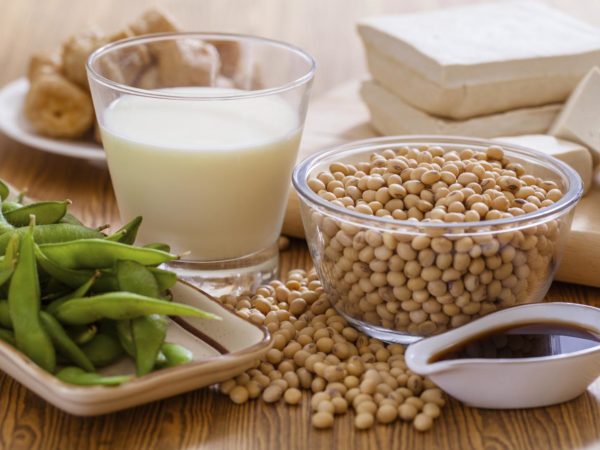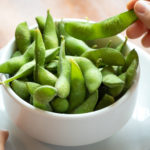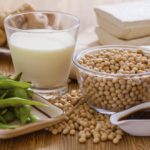Is Soy Milk Safe?
I recently read an article that warns that soy milk is a rip-off and contains a lot of bad stuff. It advises making your own soy milk using soy beans, water and a soy milk machine. Is commercially available soy milk unsafe? If so, what do you recommend?
Andrew Weil, M.D. | November 13, 2023

I’ve seen many articles warning that soy foods in general, including soy milk, aren’t healthy and contain hidden substances that are dangerous. Critics of soy allege that it is bad for the thyroid, can cause cancer, Alzheimer’s disease and mineral deficiencies. None of these sensational claims has ever been proven. I believe soy milk is a safe choice for those who are unable to digest the lactose in cow’s milk, who prefer a plant-based diet, or who are looking for the health benefits of soy products.
Remember, Asians have been eating lots of soy foods for centuries, and the supposed terrible consequences of soy consumption haven’t materialized among them. In fact, traditional soy-rich Asian diets are associated with lower risks of breast and prostate cancer than Western diets.
Based on the weight of available evidence, I remain convinced that moderate, regular consumption of whole soy products is safe and beneficial. I recommend one to two daily servings, which can include a cup of soy milk, a half cup of tofu, tempeh or green soybeans (edamame), or roasted soy nuts. Soy milk provides all the benefits of cow’s milk, without the milk protein (casein), which can increase mucus production and irritate the immune system in some people, and milk sugar (lactose), which can cause digestive distress if you lack the enzyme that breaks it down.
Soy milk is made by soaking dried beans in water, grinding them, heating them in water, pressing them, and straining the milk. Soy milk makers for home use are widely available, and people who use them say fresh, homemade soy milk is much better tasting than packaged products. And it will have no additives.
One cup of soy milk contains four to 10 grams of soy protein, and 20 to 40 mg of isoflavones, plant compounds that may act like estrogen but probably account for soy’s protective effect against hormonally driven cancers (especially when soy is part of the diet from early childhood). While soy milk is high in calcium, it doesn’t have as much as cow’s milk so it is important to look for a brand that is fortified with calcium.
For those who don’t have the time or inclination to make their own soy milk, I believe commercially available soy milk products are safe, but I do recommend certain precautions. Since many soy crops are heavily treated with pesticides, always buy certified organic soy products. I also recommend avoiding brands of soy milk that contain the thickening agent carrageenan, a seaweed derivative, which I believe may be harmful, especially to the intestinal tract. (If you have other concerns about soy products, read my recent column on “Rethinking Soy?”)
Andrew Weil, M.D.
Originally Posted November 2007. Update November 2023












